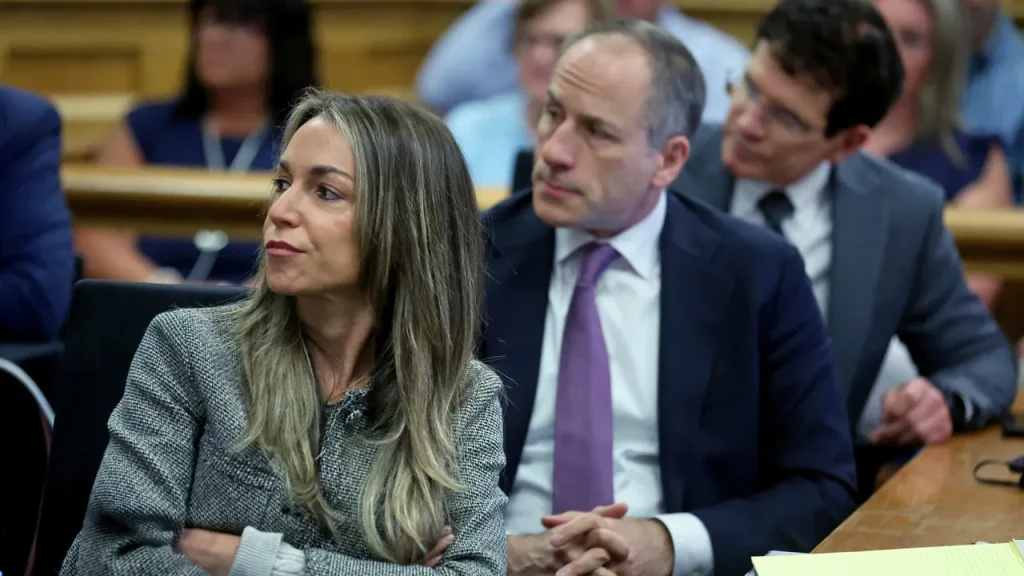In a high-profile retrial, Karen Read, 45, has confirmed that she will not testify in her defense against charges of murdering former boyfriend John O’Keefe, a Boston police officer. The trial centers on an incident where Read is accused of hitting O’Keefe with her SUV and leaving him to succumb to his injuries during a snowstorm in January 2022. As the case approaches closing arguments, prominent defense witness Dr. Andrew Rentschler was brought in to challenge the prosecution’s claims regarding the cause of O’Keefe’s death.
| Article Subheadings |
|---|
| 1) Overview of the Incident |
| 2) Defense Strategy and Expert Testimony |
| 3) Prosecution’s Case and Rebuttals |
| 4) Impact of Jury Instructions |
| 5) Implications for Future Cases |
Overview of the Incident
On January 29, 2022, the life of John O’Keefe, a 46-year-old police officer in Boston, was tragically cut short. Reports indicate that Read allegedly struck O’Keefe with her 2021 Lexus LX 570 in a snowy environment and failed to call for help afterward. The incident resulted in O’Keefe sustaining severe injuries, including a skull fracture. Read was subsequently charged with murder, leading to her first trial and later a retrial. The courtroom dynamics have been intense, with public and media scrutiny drawing attention to the specifics of the case.
Defense Strategy and Expert Testimony
In this retrial, Read’s defense has strategically chosen to call Dr. Andrew Rentschler as a key witness. Rentschler, associated with a crash reconstruction firm, refuted the prosecution’s assertion that Read’s vehicle was responsible for O’Keefe’s injuries. His testimony spanned two days, during which he elaborated on his findings. Notably, he expressed skepticism about the collision’s severity, stating,
“I do not believe that injury is consistent with being struck by an SUV at approximately 24 miles an hour.”
Rentschler’s examination revealed that O’Keefe’s injuries did not align with those typically seen in vehicular accidents involving pedestrians. Rentschler reportedly found no significant arm injuries, which would normally occur in such a scenario.
Prosecution’s Case and Rebuttals
The prosecution, led by special prosecutor Hank Brennan, is relying heavily on the evidence of debris found at the scene. Brennan questioned the credibility of Rentschler’s findings during cross-examination, hinting that certain physical evidence, such as pieces of O’Keefe’s clothing and fragments of his taillight, proved crucial in establishing the impact details. Brennan pointed out that Rentschler failed to consider pieces of shattered taillight discovered near O’Keefe’s body, a factor that could complicate the accident’s interpretation.
Legal analysts observe that the trial has manifested into a battle of experts, with both sides presenting seemingly conflicting conclusions. Some believe that Rentschler’s testimony, although compelling, may not be sufficient to overshadow the physical evidence that the prosecution intends to emphasize in their closing arguments.
Impact of Jury Instructions
As the jury prepares to enter deliberations, the impact of the judge’s instructions is critical. The jurors will receive guidance on how to interpret evidence presented during the trial, along with the legal standards required for a guilty verdict. Legal experts speculate that clear and understandable instructions will be essential. The prosecution’s case relies on convincing the jury that Read acted with malice, while the defense seeks to establish reasonable doubt concerning the cause of death and the events leading up to it. The judge’s directives could greatly influence how the jurors deliberate the contrasting expert testimonies presented by both sides.
Implications for Future Cases
The outcome of this high-profile retrial could set important precedents for similar future cases. Legal professionals are closely watching the strategies employed by both sides, particularly regarding the use of expert testimony in vehicular homicide cases. Should Read be acquitted, it may encourage different approaches in defending clients facing similar charges where circumstantial evidence plays a significant role. Conversely, a conviction could encourage prosecutors to leverage expert testimonies more aggressively in cases that hinge on vehicular collisions.
| No. | Key Points |
|---|---|
| 1 | Kareen Read is charged with the murder of John O’Keefe following an alleged vehicular incident. |
| 2 | Defense expert Dr. Andrew Rentschler testified that O’Keefe’s injuries were inconsistent with Read’s SUV striking him. |
| 3 | The prosecution argues that evidence at the scene, including debris, supports its case of vehicular homicide. |
| 4 | Jury instructions from the judge will significantly impact the deliberations and final verdict. |
| 5 | The outcome could influence how future vehicular homicide cases are prosecuted and defended. |
Summary
The retrial of Karen Read stands as a pivotal moment not only for the individuals involved but also for the judicial process regarding vehicular homicide cases. The strength of expert testimonies, the physical evidence presented, and the subsequent jury instructions will play essential roles in determining the final outcome. As the case progresses toward closing arguments, the legal community is keenly observing to understand the implications of whatever verdict is reached, which may set a precedent for future legal battles in similar contexts.
Frequently Asked Questions
Question: What are the charges against Karen Read?
Karen Read is charged with murder in the death of her boyfriend, John O’Keefe, following an alleged vehicular incident that occurred in January 2022.
Question: Who is Dr. Andrew Rentschler?
Dr. Andrew Rentschler is a crash reconstruction expert who testified for the defense, arguing that the injuries sustained by John O’Keefe were inconsistent with being struck by an SUV.
Question: What impact could this trial have on future cases?
The outcome of this retrial has the potential to influence how future vehicular homicide cases are prosecuted, particularly regarding the use of expert testimony and the evaluation of circumstantial evidence.
